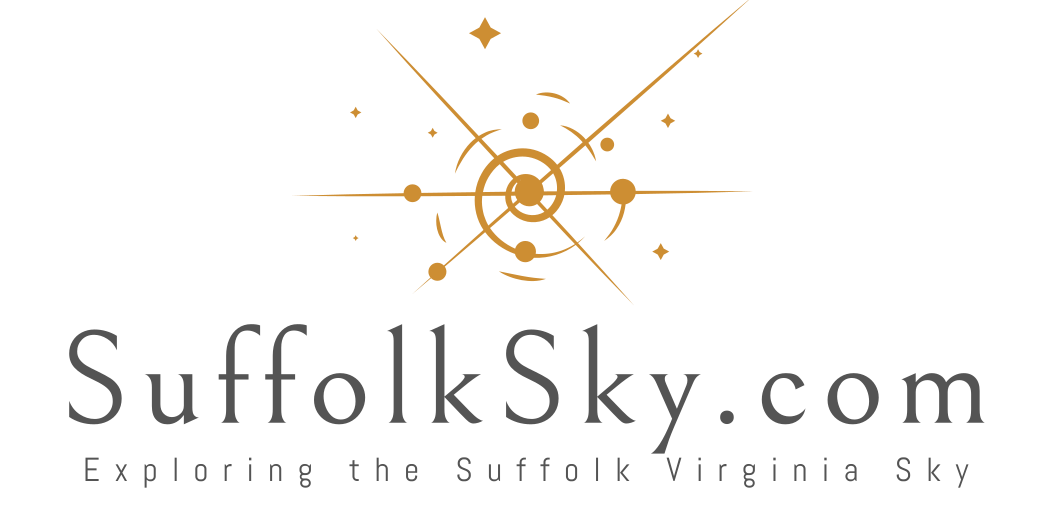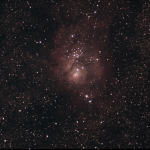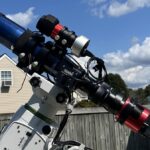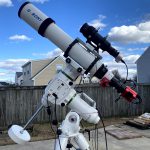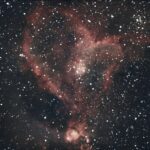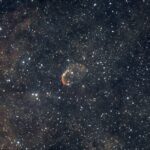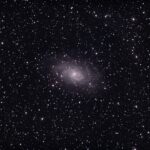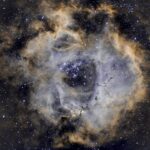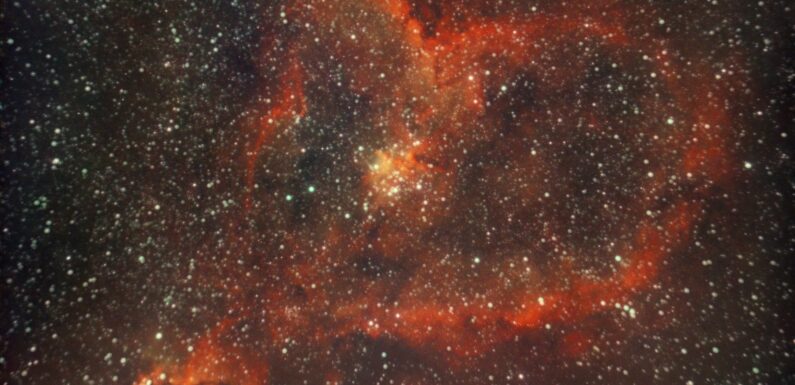
A bit worried about a few clouds just before dark but it turned out to be a beautiful Moonless night. Been a few weeks since I have been able to set up and the plan was to try out the SVBONY SV240 Multi-Narrowband on the Heart Nebula. Ended up getting a solid 4 hours of light from this bright emission nebula.
| Primary (Imaging) | Secondary (Guiding) |
|---|---|
| Scope: Astro-Tech AT66ED (400mm – F/6) Reducer/Flattener: None Filter: SVBONY SV240 Multi-Narrowband Camera: ZWO ASI294 MC Pro, Cooled to -10 C Focuser: Gemini Autostar Focuser Mount: Sky Watcher EQ6-R Pro |
Scope: SVBONY SV165 30mm F/4 Guide Scope Camera: Orion Star Shooter Autoguider (OSSAG) |
| Telescope Control, Image Acquisition, and Image Processing Software | |
|
Equipment Control and Imaging Software: NINA/PHD2/ASCOM on a Mini-PC Processing Software: GraXpert, Siril astronomical image processing tool, Siril’s Interactive Companion (Sirilic) |
|
Just after dark I checked focus running the NINA Autofocus multiple time with SVBONY SV240 Multi-Narrowband in the image train. Once I had pretty solid focus I dialed in the polar alignment. After Astronomical Dark I started the NINA Sequence.
The Heart Nebula or Sharpless 2-190 is a large emission nebula in the constellation of Cassiopeia.
This is a Sirilic RGB stack of 80 x 180 second exposures, 121 gain, 30 offset, and bin2x2. Background extraction and denoise with GraXpert. Enhancements and stretching with Siril.
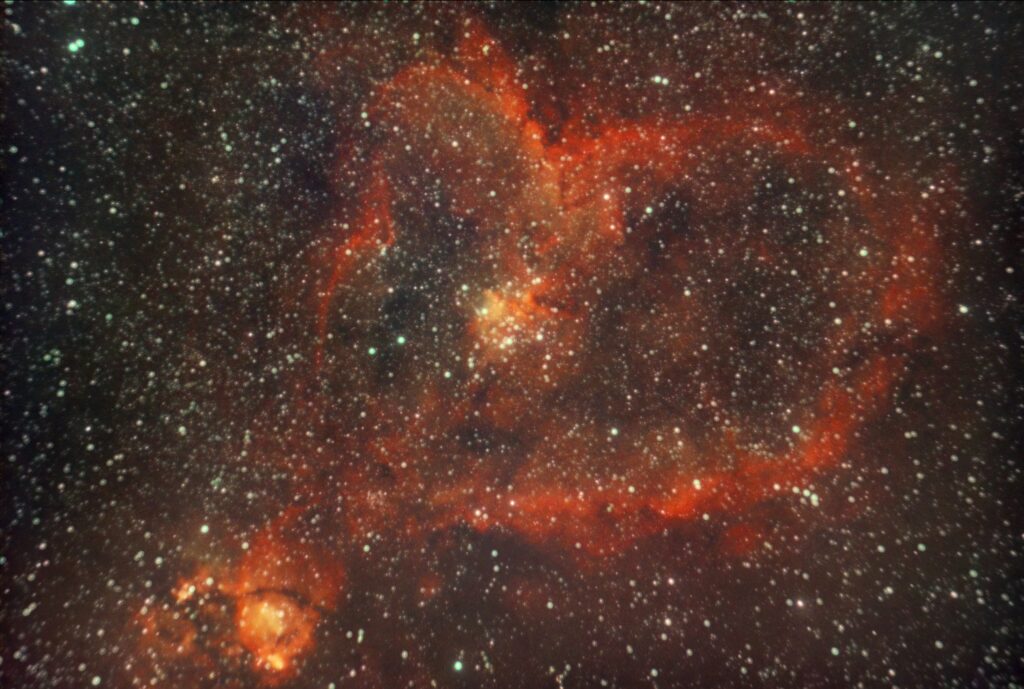
IC 1805 is the open cluster of stars in the center of the FOV.
Tried out the HaOIII processing in Sirilic and then used the Hubblematic to convert it to the Hubble palette.
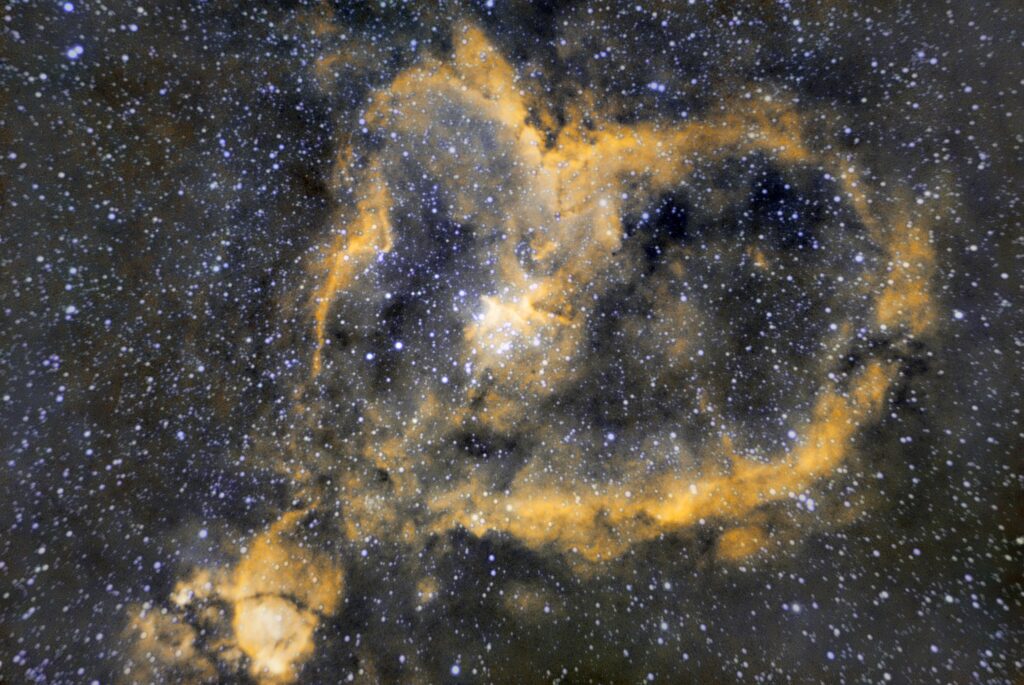
This is 21 x 180 second exposures of the Heart Nebula at 121 gain, 30 offset, and bin 2×2. Calibrated, stacked, cropped, and processed with Siril. This image was taken on 01/04/2024 using the ZWO Duo-band filter with the SVBONY 102ED.
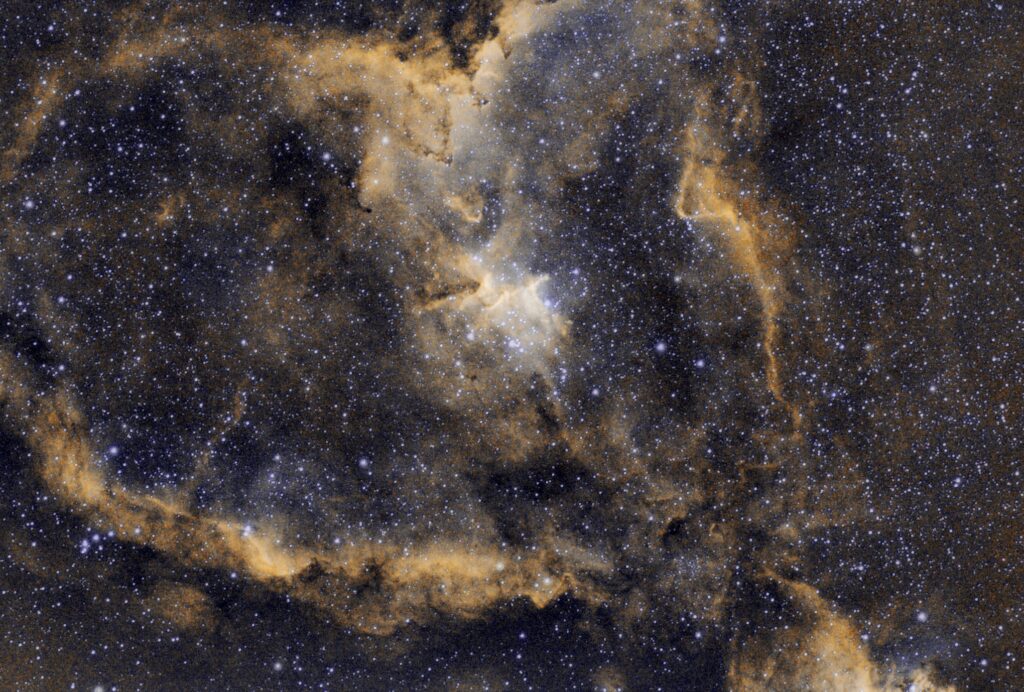
That same exposure length but only a quarter of the time. I think it is much cleaner image… could be the scope, could be the filter. Going to try to get some more time on the Heart Nebula using the ZWO Dual Band in the AT66ED for a better comparison.
Nights are going to keep getting longer as we head into winter. With falling the clocks back last night it is going to start getting dark around 5 PM or so. Hopefully that will give us a few more opportunities to look up, especially on school nights.
